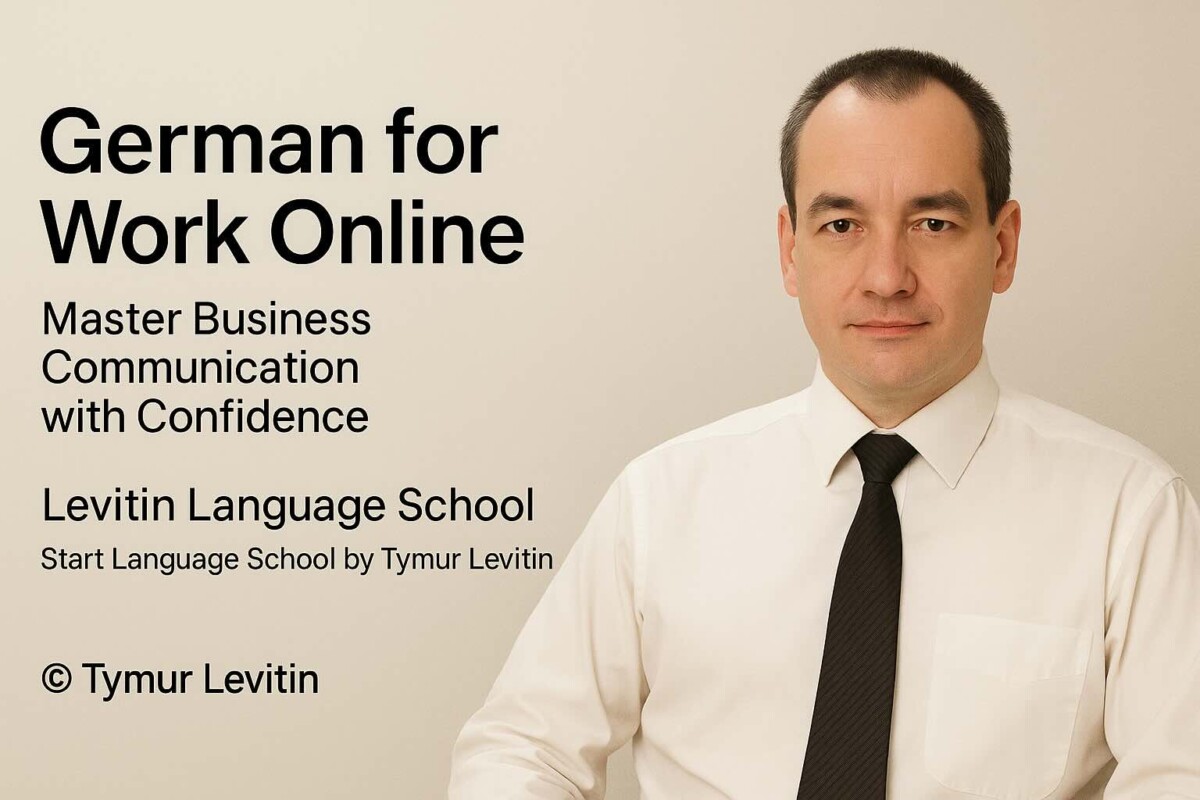🗂️ Category: Online Language Learning
🗣️ Introduction
We all know the basic formula:
👉 He said, “I am coming.” → He said he was coming.
But when you compare British and American English, Alemán, Ucranianoy Ruso, the story becomes much deeper.
- Each language has areas it covers well.
- Each language also has blind spots — places where grammar fails to show what speakers really mean.
This article digs all the way down to the atomic level of tense shift.
📘 Classical Rules
English (general):
- Present → Past
- Past → Past Perfect
- Future → would
German:
- Reported speech uses either Konjunktiv I (Er sagte, er sei krank) or backshift with Indikativ.
- Future → Conditional (würde).
Ukrainian / Russian:
- No fixed backshift system.
- Both він іде / он идёт (“he is going”) and він йшов / он шёл (“he was going”) are possible.
🎓 Modern Usage
- British English: often keeps the present (He said he is coming) if the fact is still true.
- American English: prefers backshift (He said he was coming), even if it’s still true.
- German:
- Konjunktiv I = neutral report, no responsibility.
- Indikativ = speaker interprets and takes responsibility.
- Ukrainian/Russian: flexible; meaning comes from context, not strict rules.
🚨 Blind Spot 1 — Past to Present
How do you say: “He said he has been walking for 15 minutes, and he is still walking now”?
- Inglés:
- Grammar forces: He said he had been walking…
- Ambiguous: maybe still walking, maybe stopped.
- No official form for “past + still true now.”
- British English: sometimes breaks the rule: He said he has been walking… → natural, but “wrong” in textbooks.
- American English: almost always: He said he had been walking… → consistent form, lost meaning.
- German: Er sagte, er sei seit 15 Minuten unterwegs. → neutral citation, but no clarity if still true.
- Ukrainian: Він сказав, що він іде вже 15 хвилин. → clear, still going now.
- Russian: Он сказал, что он идёт уже 15 минут. → same clarity.
👉 Slavic languages win here: they can mark “still happening now.”
🧩 Blind Spot 2 — Continuous Ambiguity
- Inglés: He said he had been walking… = either still walking or already stopped.
- German: er sei gegangen / er war gegangen → same ambiguity.
- Ukrainian: йшов (past) vs іде (present) → clear split.
- Russian: шёл vs идёт → same split.
👉 English and German collapse two meanings into one. Ukrainian/Russian preserve the nuance.
🔦 Blind Spot 3 — After-Event Gap
- He said he had been walking for 15 minutes when he met us.
👉 Grammar shows “walking up to the meeting,” but says nothing about after. - Ukrainian: Він сказав, що йшов 15 хвилин, коли зустрів нас. → same silence.
- Russian: Он сказал, что шёл 15 минут, когда встретил нас. → same silence.
- German: Er sagte, er sei seit 15 Minuten gegangen, als er uns traf. → same silence.
👉 None of these languages can show “continued after the event” without extra words.
🪞 Blind Spot 4 — Responsibility (German Only)
- Er sagte, er sei krank. → Konjunktiv I = neutral report, no responsibility.
- Er sagte, er war krank. → Indikativ = speaker interprets, almost confirms.
- Er sagte, er war krank gewesen. → Plusquamperfekt = clear sequence (first sick, then said it).
👉 German uniquely marks “neutral vs responsible reporting.”
👉 English, Ukrainian, and Russian cannot.
🇬🇧 vs 🇺🇸 The Paradox
We expect Brits to be stricter and Americans more relaxed. But in tense shift it’s the opposite.
- British English:
- Allows He said he is coming if still true.
- Focus on meaning and current relevance.
- American English:
- Prefers He said he was coming, even if still true.
- Focus on formal consistency and simplicity.
👉 British = meaning > form.
👉 American = form > meaning.
👂 Real-Life Speech
- UK: He said he is coming, innit.
- US: He said he was coming.
- DE: Er sagte, er sei unterwegs.
- UA: Він сказав, що він іде.
- RU: Он сказал, что он идёт.
🧨 Summary of Blind Spots
- Past-to-Present
- English/German lack a form for “still true now.”
- Ukrainian/Russian have it (іде / идёт).
- Continuous Ambiguity
- English/German: one form for both “still” and “stopped.”
- Ukrainian/Russian: two forms, clear difference.
- After-Event Gap
- All languages silent on whether action continued.
- Responsibility
- Only German grammatically marks “neutral vs responsible reporting.”
🛡️ Exam Survival
- Inglés: Always backshift in writing.
- German: Use Konjunktiv I in formal writing.
- Ukrainian/Russian: No strict backshift rule — rely on context.
- Speaking: Keep Present if still true (EN/UA/RU).
📝 Conclusion
Every language has blind spots:
- English (general): systematic, but blind to past-to-present.
- British English: more flexible, meaning-oriented.
- American English: stricter, simpler, but loses relevance.
- German: precise with responsibility, blind with continuity.
- Ukrainian/Russian: flexible, preserve “идёт/шёл,” but rely on context.
👉 The lesson: Grammar gives tools, but never full meaning. Context — and your awareness of these gaps — does the rest.
📌 At Escuela de idiomas Levitin / Start Language School by Tymur Levitin, we don’t just teach rules. We show where rules break, and how real people speak.

🌍 Choose Your Language
En Escuela de idiomas Levitin / Start Language School by Tymur Levitin, you can study English, Ukrainian, German and many other languages with experienced tutors.
🔗 Related Materials
- Tense shift in translation: why time always matters
- Why Americans Say “Gonna” Instead of “Going to”
- Tymur Levitin — Teacher & Founder
✍️ Columna del autor
Author’s work by Tymur Levitin — founder, director, and head teacher of Levitin Language School.
© Tymur Levitin
























